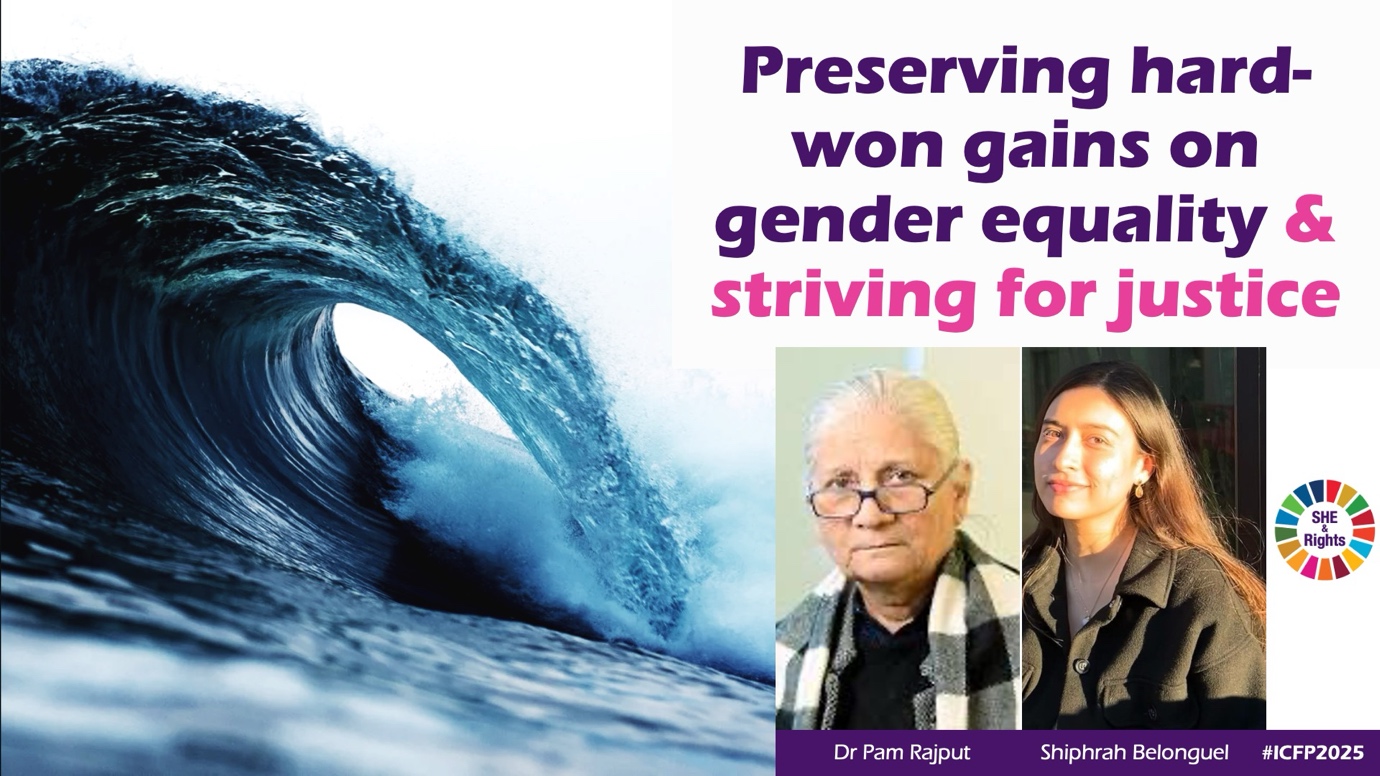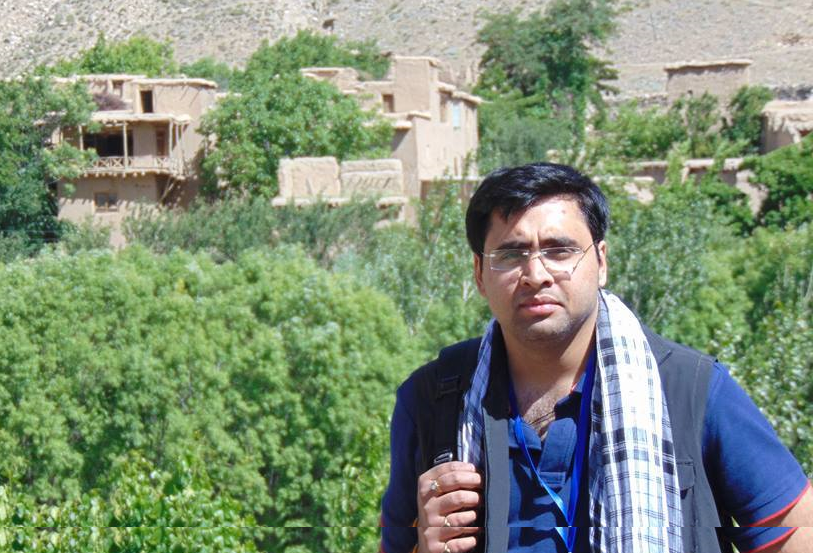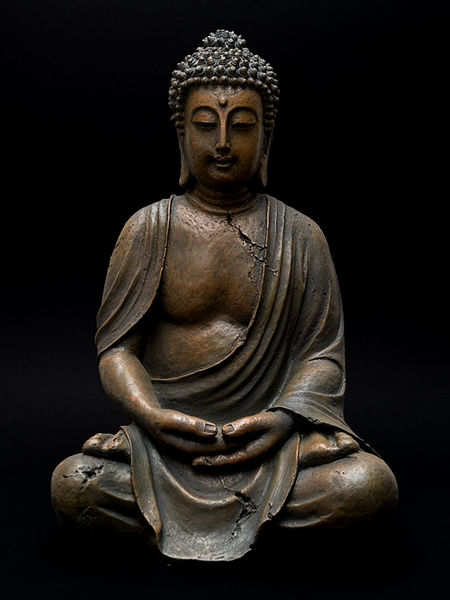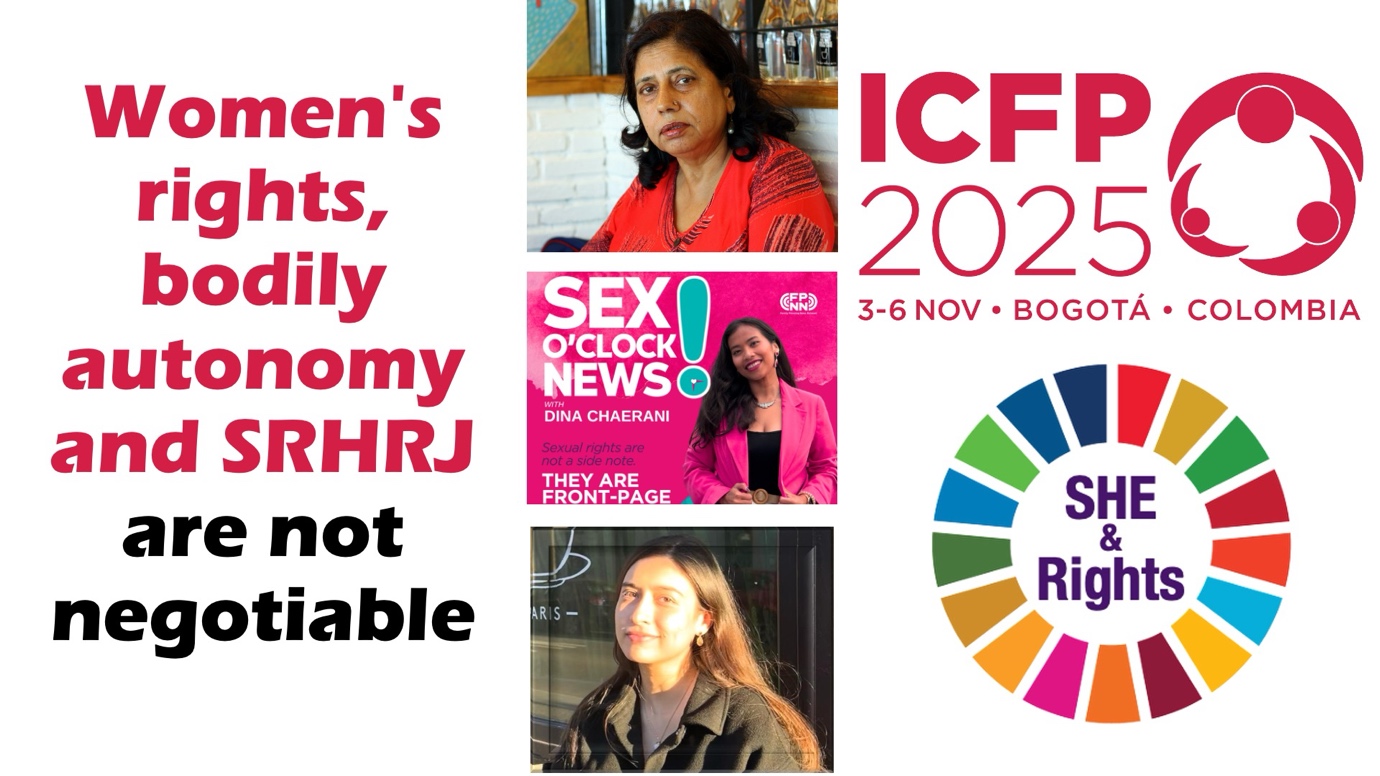Recently, a deadly series of clashes occurred on the Durand Line between Taliban fighters and the Pakistani Army. The disputed 1,600-mile border be
Preserving hard-won gains: Feminist voices on the future of gender equality. By SHOBHA SHUKLA

Gender equality is enshrined in the opening preamble of United Nations Charter 1945. But despite progress and some setbacks, not a single country has delivered 100% on gender equality. Is the sinister link between capitalism, corporate capture, religious fundamentalism, militarisation, politics of power and gender inequality, the reason why progress on gender equality remains off the mark?
Dr Pam Rajput, Professor Emeritus and Founder of the Department-cum-Centre for Women’s Studies and Development at Panjab University, India, and a globally respected feminist academic and leader, shared her deeply reflective insights on the current state of the global gender equality movement.
Dr Pam has earlier served on the Government of India's High Level Committee on the Status of Women, Vice Chair of the National Alliance of Women, Convenor of Women 2030 and South Asia Women's Watch, and former Chair of the Asia Pacific Women's Watch. Dr. Rajput has also represented India in the W20 and has chaired Working Groups on Inclusive Decision Making and Violence Against Women and Girls.
First-ever UN Commission on the Status of Women (CSW) was held in 1947, soon after establishment of the UN itself. Dr Rajput has been attending the United Nations Commission on the Status of Women (CSW) every year since 1993 - even before the 1995 Beijing Declaration or the 1994 ICPD (International Conference on Population and Development - a landmark 1994 UN conference that focused on human rights, reproductive health, gender equality, and women's empowerment). She has also attended the High-Level Political Forums (HLPF).
But this year, she did not. Why?
“I feel frustrated - frustrated by an administration that makes you fear simply entering the space. We are all deeply committed and have worked for years on the issues of gender equality, and a lot of our inputs and advocacy have gone into it. But today, the future feels uncertain.”
Dr Rajput was speaking at the SHE & Rights session on the theme: "It is time for accountability and action after UNGA High Level Meeting around Beijing+30." SHE & Rights (Sexual Health with Equity & Rights) was organised by Global Center for Health Diplomacy and Inclusion (CeHDI), International Conference on Family Planning (ICFP 2025), CNS and partners.
A call to the next generation
“But that doesn’t mean we give up. Far from it, we must continue the struggle. The young generation, the emerging feminist leadership in whom we place our hope, must take on greater responsibility. If we cannot move forward, we must at least ensure that we do not regress. Our hard-earned rights, especially in areas like sexual and reproductive health and rights, are agreed conclusions from CSW. Undermining SRHR is not just a policy shift—it erases decades of struggle”, she said.
Challenges to global justice and accountability
Dr. Rajput also raised concerns about the failure of international justice mechanisms:
“The next CSW session will focus on judicial institutions and laws—largely in domestic contexts. But what about the role of international courts? What is the point of the International Court of Justice or the International Criminal Court if they cannot uphold justice? We saw what happened in Gaza and in Ukraine - women suffered immensely. Yes, the courts found that genocide had occurred, but they failed to control it. These mechanisms risk becoming symbolic, even farcical."
Revitalising CSW
In the same session, Shiphrah Belonguel, Global Advocacy Officer at Fòs Feminista, spoke about the ongoing United Nations Commission the Status of Women (CSW) revitalisation process and the importance of safeguarding feminist progress within UN structures.
As we all know UN CSW - an intergovernmental body - remains one of the world’s largest body of women’s rights advocates, working to shape global policy norms for gender equality and the empowerment of women.
Strengthening the CSW’s mandate
The CSW revitalisation process is a UN-led effort to reinforce the Commission’s role as a key normative platform for gender equality.
“Thanks to collective advocacy, the revitalisation resolution has been adopted within ECOSOC. Starting from CSW70 in 2026, we will see high-level meetings focused on violence against women and the beginning of multi-stakeholder hearings—an important space for civil society. Interactive dialogues will continue, with an emphasis on meaningful engagement from member states. This resolution does not invent new practices—it institutionalises existing ones. But it is a step forward in protecting feminist space”, explained Belonguel.
She stressed upon the importance of staying vigilant as Beijing+30 commemorations unfold: “2025 marks 30 years of the Beijing Declaration. This year at CSW69, Beijing+30 was launched and culminated at the 80th UN General Assembly High-Level Meeting. It reaffirmed commitments to the gender equality agenda. But even here, there are troubling trends."
“Some governments are twisting gender equality language to promote pronatalist agendas, framing women only in terms of fertility and population control. This is dangerous. We must resist the framing of family planning through demographic panic. As SRHR advocates, we must assert that bodily autonomy and reproductive justice are non-negotiable. These must remain central to any family planning discussions," said Belonguel.
Belonguel also expressed concerns about the implications of UN80 Initiative: “Launched in March 2025, the UN80 Initiative aims to transform how the UN functions, including re-examining mandates and structures. Gender equality mandates across UN agencies are under scrutiny - potentially deprioritised in the name of austerity or efficiency. This is happening amidst rising anti-gender and anti-rights influence. We need to think about why this is happening currently and what political choices are being made."
Holding the line: The role of feminist movements
“Our priority must be to keep feminist movements inside these processes at the UN and monitor them, making sure that reforms do not erode civil society space or sideline gender and human rights - but instead elevate them. While the UN80 Initiative is underway, we must make sure our hard-won normative spaces are not only protected—but expanded,” stressed Belonguel.
Leadership and feminist solidarity
There is a demand, and rightly so, that the next UN Secretary-General be a woman. But Dr Rajput wonders whether she would be independent of the regressive forces dragging us backwards on gender and human rights. This is not just about symbolic representation - it is about transformative leadership.
Dr Rajput recalled Beijing 1995 when participants were singing "We Shall Overcome."
Representing Asia-Pacific civil society, at the 2000 UN General Assembly Special Session, she had ended her speech with the words: "When shall we sing that we have overcome?"
A movement at crossroads?
These testimonies from Dr. Pam Rajput and Shiphrah Belonguel are a sobering reminder that while we mark milestones like Beijing+30, the fight for gender equality and human rights is far from over. The feminist movement must navigate increasingly hostile political terrain, push back against regressive narratives, and hold global institutions accountable.
The message is clear: we cannot afford to lose ground. Feminist leadership, particularly from younger generations, must rise to the moment. The struggle continues - but so does the hope.
"We shall overcome - and we must work together to make sure of it."
(Shobha Shukla is a feminist, health and development justice advocate, and an award-winning founding Managing Editor and Executive Director of CNS (Citizen News Service). She was also the Lead Discussant for SDG-3 at United Nations inter-governmental High Level Political Forum (HLPF 2025). She is a former senior Physics faculty of prestigious Loreto Convent College; current President of Asia Pacific Regional Media Alliance for Health, Gender and Development Justice (APCAT Media); Chairperson of Global AMR Media Alliance (GAMA received AMR One Health Emerging Leaders and Outstanding Talents Award 2024); and Host of SHE & Rights (Sexual Health with Equity & Rights). Follow her on Twitter/X @shobha1shukla or read her writings here www.bit.ly/ShobhaShukla)
Dr Pam Rajput, Professor Emeritus and Founder of the Department-cum-Centre for Women’s Studies and Development at Panjab University, India, and a globally respected feminist academic and leader, shared her deeply reflective insights on the current state of the global gender equality movement.
Dr Pam has earlier served on the Government of India's High Level Committee on the Status of Women, Vice Chair of the National Alliance of Women, Convenor of Women 2030 and South Asia Women's Watch, and former Chair of the Asia Pacific Women's Watch. Dr. Rajput has also represented India in the W20 and has chaired Working Groups on Inclusive Decision Making and Violence Against Women and Girls.
First-ever UN Commission on the Status of Women (CSW) was held in 1947, soon after establishment of the UN itself. Dr Rajput has been attending the United Nations Commission on the Status of Women (CSW) every year since 1993 - even before the 1995 Beijing Declaration or the 1994 ICPD (International Conference on Population and Development - a landmark 1994 UN conference that focused on human rights, reproductive health, gender equality, and women's empowerment). She has also attended the High-Level Political Forums (HLPF).
But this year, she did not. Why?
“I feel frustrated - frustrated by an administration that makes you fear simply entering the space. We are all deeply committed and have worked for years on the issues of gender equality, and a lot of our inputs and advocacy have gone into it. But today, the future feels uncertain.”
Dr Rajput was speaking at the SHE & Rights session on the theme: "It is time for accountability and action after UNGA High Level Meeting around Beijing+30." SHE & Rights (Sexual Health with Equity & Rights) was organised by Global Center for Health Diplomacy and Inclusion (CeHDI), International Conference on Family Planning (ICFP 2025), CNS and partners.
A call to the next generation
“But that doesn’t mean we give up. Far from it, we must continue the struggle. The young generation, the emerging feminist leadership in whom we place our hope, must take on greater responsibility. If we cannot move forward, we must at least ensure that we do not regress. Our hard-earned rights, especially in areas like sexual and reproductive health and rights, are agreed conclusions from CSW. Undermining SRHR is not just a policy shift—it erases decades of struggle”, she said.
Challenges to global justice and accountability
Dr. Rajput also raised concerns about the failure of international justice mechanisms:
“The next CSW session will focus on judicial institutions and laws—largely in domestic contexts. But what about the role of international courts? What is the point of the International Court of Justice or the International Criminal Court if they cannot uphold justice? We saw what happened in Gaza and in Ukraine - women suffered immensely. Yes, the courts found that genocide had occurred, but they failed to control it. These mechanisms risk becoming symbolic, even farcical."
Revitalising CSW
In the same session, Shiphrah Belonguel, Global Advocacy Officer at Fòs Feminista, spoke about the ongoing United Nations Commission the Status of Women (CSW) revitalisation process and the importance of safeguarding feminist progress within UN structures.
As we all know UN CSW - an intergovernmental body - remains one of the world’s largest body of women’s rights advocates, working to shape global policy norms for gender equality and the empowerment of women.
Strengthening the CSW’s mandate
The CSW revitalisation process is a UN-led effort to reinforce the Commission’s role as a key normative platform for gender equality.
“Thanks to collective advocacy, the revitalisation resolution has been adopted within ECOSOC. Starting from CSW70 in 2026, we will see high-level meetings focused on violence against women and the beginning of multi-stakeholder hearings—an important space for civil society. Interactive dialogues will continue, with an emphasis on meaningful engagement from member states. This resolution does not invent new practices—it institutionalises existing ones. But it is a step forward in protecting feminist space”, explained Belonguel.
She stressed upon the importance of staying vigilant as Beijing+30 commemorations unfold: “2025 marks 30 years of the Beijing Declaration. This year at CSW69, Beijing+30 was launched and culminated at the 80th UN General Assembly High-Level Meeting. It reaffirmed commitments to the gender equality agenda. But even here, there are troubling trends."
“Some governments are twisting gender equality language to promote pronatalist agendas, framing women only in terms of fertility and population control. This is dangerous. We must resist the framing of family planning through demographic panic. As SRHR advocates, we must assert that bodily autonomy and reproductive justice are non-negotiable. These must remain central to any family planning discussions," said Belonguel.
Belonguel also expressed concerns about the implications of UN80 Initiative: “Launched in March 2025, the UN80 Initiative aims to transform how the UN functions, including re-examining mandates and structures. Gender equality mandates across UN agencies are under scrutiny - potentially deprioritised in the name of austerity or efficiency. This is happening amidst rising anti-gender and anti-rights influence. We need to think about why this is happening currently and what political choices are being made."
Holding the line: The role of feminist movements
“Our priority must be to keep feminist movements inside these processes at the UN and monitor them, making sure that reforms do not erode civil society space or sideline gender and human rights - but instead elevate them. While the UN80 Initiative is underway, we must make sure our hard-won normative spaces are not only protected—but expanded,” stressed Belonguel.
Leadership and feminist solidarity
There is a demand, and rightly so, that the next UN Secretary-General be a woman. But Dr Rajput wonders whether she would be independent of the regressive forces dragging us backwards on gender and human rights. This is not just about symbolic representation - it is about transformative leadership.
Dr Rajput recalled Beijing 1995 when participants were singing "We Shall Overcome."
Representing Asia-Pacific civil society, at the 2000 UN General Assembly Special Session, she had ended her speech with the words: "When shall we sing that we have overcome?"
A movement at crossroads?
These testimonies from Dr. Pam Rajput and Shiphrah Belonguel are a sobering reminder that while we mark milestones like Beijing+30, the fight for gender equality and human rights is far from over. The feminist movement must navigate increasingly hostile political terrain, push back against regressive narratives, and hold global institutions accountable.
The message is clear: we cannot afford to lose ground. Feminist leadership, particularly from younger generations, must rise to the moment. The struggle continues - but so does the hope.
"We shall overcome - and we must work together to make sure of it."
(Shobha Shukla is a feminist, health and development justice advocate, and an award-winning founding Managing Editor and Executive Director of CNS (Citizen News Service). She was also the Lead Discussant for SDG-3 at United Nations inter-governmental High Level Political Forum (HLPF 2025). She is a former senior Physics faculty of prestigious Loreto Convent College; current President of Asia Pacific Regional Media Alliance for Health, Gender and Development Justice (APCAT Media); Chairperson of Global AMR Media Alliance (GAMA received AMR One Health Emerging Leaders and Outstanding Talents Award 2024); and Host of SHE & Rights (Sexual Health with Equity & Rights). Follow her on Twitter/X @shobha1shukla or read her writings here www.bit.ly/ShobhaShukla)
You May Also Like
Kashmir, the land of saints and sages, has always been a cradle of spirituality and intellectual enlightenment. Among the many faiths that blossome
Despite right to health and gender equality being fundamental human rights, the world is off the track from delivering on these goals in next 62 mo

"Trial of Pakistani Christian Nation" By Nazir S Bhatti
On demand of our readers, I have decided to release E-Book version of "Trial of Pakistani Christian Nation" on website of PCP which can also be viewed on website of Pakistan Christian Congress www.pakistanchristiancongress.org . You can read chapter wise by clicking tab on left handside of PDF format of E-Book.







